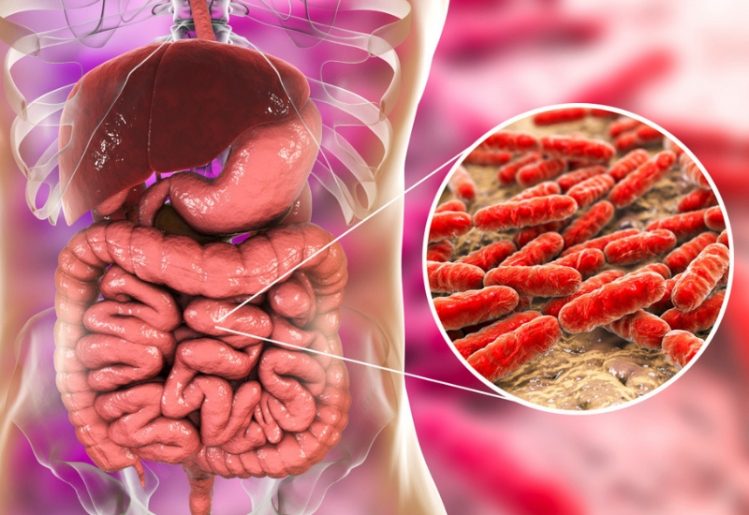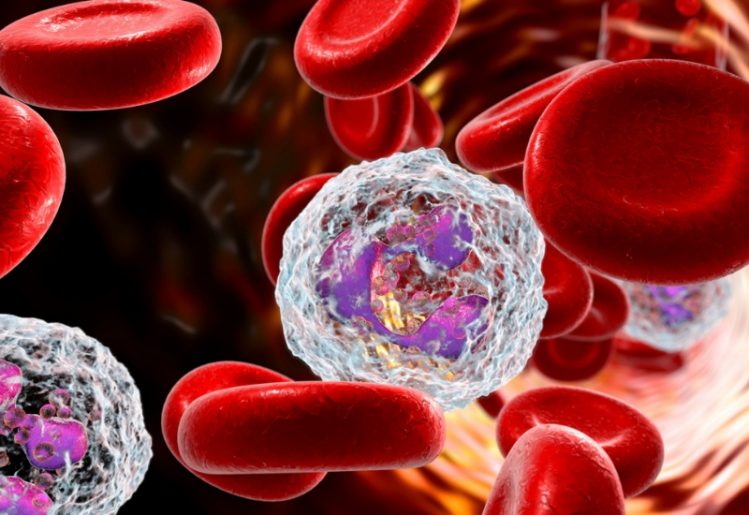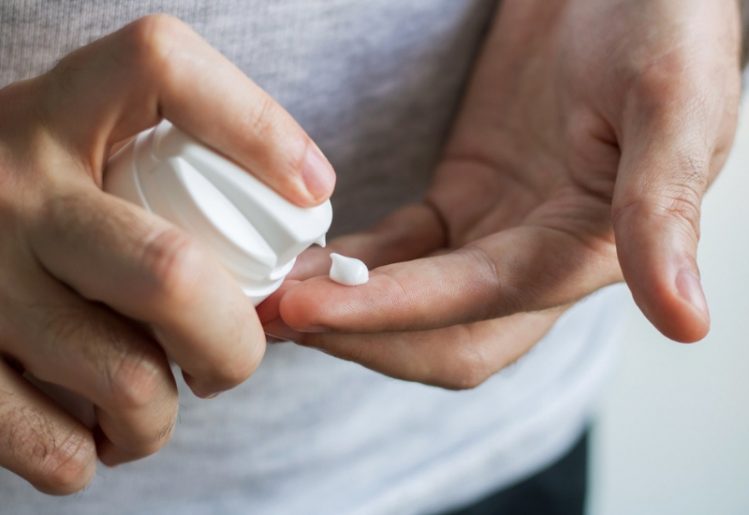Heart disease rates are declining throughout the world, while at the same time they are on the rise in the United States. In fact, heart disease is responsible for nearly one out of every four deaths in the U.S. This makes heart disease the leading cause of premature death among Americans, ranking higher than cancer and certain types of chronic respiratory illnesses. Even though living a healthy lifestyle has become a focus for more people than ever before, cardiovascular disease is still a growing problem.
The Dangers and Risks of Cardiovascular Disease
 According to recent study published by the American Heart Association, almost half of all adult Americans live with some type of heart disease. The condition can lead to any number of serious medical conditions, including:
According to recent study published by the American Heart Association, almost half of all adult Americans live with some type of heart disease. The condition can lead to any number of serious medical conditions, including:
- atherosclerosis
- heart failure
- heart attack
- stroke
- arrhythmia
- heart valve malfunctions
Fortunately, many people have started taking heart health more seriously, and have reduced their participation in risky behaviors. For instance, cigarette smoking rates are the lowest they have been with more teenagers choosing not to take up the habit. In the 2015-16 school year, it was reported that as many as 95 percent of teens aged 12 through 19 did not smoke. By comparison, only 75 percent of teens in that same age group reported that they were not smokers in the 1999–2000 school year.
Even physical activity is on the rise, with more teens and young adults engaging in exercise more often. In a recent study, over half of U.S. teens reported engaging in moderate resistance training at least three times per week. Older adults also reported engaging in more exercise. The number of adults living sedentary lifestyles has dropped by a third over the past decade.
The news isn’t all good. Sleep deprivation is on the rise, and has many negative effects on the body. In particular, a lack of sleep inhibits the body’s ability to heal blood vessels and process excess blood sugar. When these processes are interrupted over a long period of time, overall heart health can be compromised, leading to problems throughout the cardiovascular system.
Obesity and being overweight are also contributing factors to the development of cardiovascular illnesses. By losing sleep, your body isn’t able to regulate the use of fat for energy as efficiently. Combined with excessive insulin production, this causes the body to retain more weight. Since being overweight also affects cardiovascular functioning, this is another way that a lack of sleep raises the risks of heart disease and related illnesses.
Tips for Improving Heart Health
 You can control your risks of developing cardiovascular disease by changing your lifestyle. For instance, switching to a plant-based diet can give you the vitamins and nutrients you need to keep your cardiovascular system healthy. In addition to eating more plant-based foods, such as fruits, veggies, nuts and seeds, it’s also good to switch to whole grains and lean red meats. Eliminate processed foods that contain added sugar, trans fats and artificial preservatives.
You can control your risks of developing cardiovascular disease by changing your lifestyle. For instance, switching to a plant-based diet can give you the vitamins and nutrients you need to keep your cardiovascular system healthy. In addition to eating more plant-based foods, such as fruits, veggies, nuts and seeds, it’s also good to switch to whole grains and lean red meats. Eliminate processed foods that contain added sugar, trans fats and artificial preservatives.
Making sure you get the sleep you need will also help reduce risks of developing heart-related diseases. If you are having trouble sleeping, eliminate caffeine from your afternoons and evenings. You should also make it a rule to turn off all electronic devices at least one hour before bed. Instead, consider taking a warm bath, listening to soothing music or practicing yoga. Your ability to relax just before bed will better prepare you for sleep.
A new test may also help you to take precautionary measures by detecting whether or not you’re at risk of developing heart disease. This groundbreaking test involves detecting a certain protein released by the heart when the organ is injured to determine the likelihood an individual will develop heart disease at a later date.
Dr. Christie Ballantyne pursued a study to determine if that same protein, called troponin, would also indicate the risks of heart disease in someone without an injured heart muscle. The hope was that administering the blood test to healthy adults and seniors would produce the same indicators. After studying the test results of 8,121 subjects and comparing troponin levels to their risks of developing a cardiovascular condition, the research team did find a correlation. Dr. Ballantyne says the results of the study suggest that the blood test can be used to predict a future heart attack, stroke or heart failure within a 10-year time span.
Natural Supplements Help Maintain a Healthy Cardiovascular System
In addition to getting sufficient sleep and eating right, taking certain dietary supplements can also help protect your heart and cardiovascular system. For instance, taking a supplement that contains L-arginine may help protect against coronary artery disease, which is one root cause of heart attacks. L-arginine is an amino acid that helps keep the cardiovascular system healthy in other ways as well, so taking this type of supplement can have a positive effect on your overall heart health.
A multi-vitamin may also be a wise addition to your daily routine. Specifically, a supplement that contains calcium, folic acid and B vitamins may help maintain cardiovascular health by providing your body with the nutrients it needs. Even if you are eating healthier foods, it’s unlikely that you’re getting enough of these vitamins to help improve the health of your cardiovascular system. Taking supplements can give your body the boost it needs.
 A new study has identified
A new study has identified  We typically think of nuts and seeds as snack foods, but, if recent research has shown us anything, it’s that just snacking on these foods isn’t good enough. They can and should be added to your meals as often as possible. Sprinkle seeds in your salad or on chicken. Similarly, you can mix nuts in with your salads, whole grain pasta dishes or rice.
We typically think of nuts and seeds as snack foods, but, if recent research has shown us anything, it’s that just snacking on these foods isn’t good enough. They can and should be added to your meals as often as possible. Sprinkle seeds in your salad or on chicken. Similarly, you can mix nuts in with your salads, whole grain pasta dishes or rice. The reason capsaicin has gained the attention of researchers in the United States is that there are lower instances of cancer in countries where spicy dishes are more common. Thailand and India in particular have lower numbers of lung cancer cases. Seeking to understand if there was a link between spicy foods and cancer, researchers began investigating and found that capsaicin seemed to be the common factor.
The reason capsaicin has gained the attention of researchers in the United States is that there are lower instances of cancer in countries where spicy dishes are more common. Thailand and India in particular have lower numbers of lung cancer cases. Seeking to understand if there was a link between spicy foods and cancer, researchers began investigating and found that capsaicin seemed to be the common factor. We experience pain because our nerves carry pain messages to the brain. This process is aided by the release of a chemical called substance P. It has been found that capsaicin helps exhaust the supply of substance P, making it more difficult for your nerves to carry those pain messages back to the brain. To prove this effect, researchers administered 2.5 grams of capsaicin to heartburn sufferers on a daily basis. Initially, the heartburn pain worsened, but it improved significantly after the first few days.
We experience pain because our nerves carry pain messages to the brain. This process is aided by the release of a chemical called substance P. It has been found that capsaicin helps exhaust the supply of substance P, making it more difficult for your nerves to carry those pain messages back to the brain. To prove this effect, researchers administered 2.5 grams of capsaicin to heartburn sufferers on a daily basis. Initially, the heartburn pain worsened, but it improved significantly after the first few days. Recent studies have found that the majority of individuals suffering from cardiovascular disease also suffer from depression. Since the two conditions commonly occur together, it seems very likely that there may be a
Recent studies have found that the majority of individuals suffering from cardiovascular disease also suffer from depression. Since the two conditions commonly occur together, it seems very likely that there may be a  Getting more physical exercise can help
Getting more physical exercise can help  The process of populating the microbiome begins with the development of the fetus. As the fetus develops, the digestive tract is exposed to the microorganisms from the mother’s gut microbiome, as well as bacteria from the immediate environment. This mixture of microorganisms comes together to form a unique microbiome in the infant’s digestive tract. Even after birth, the baby’s microbiome is still developing. This is why there’s more bacteria in the digestive tract of a breast-fed baby than in the digestive tract of a formula-fed infant.
The process of populating the microbiome begins with the development of the fetus. As the fetus develops, the digestive tract is exposed to the microorganisms from the mother’s gut microbiome, as well as bacteria from the immediate environment. This mixture of microorganisms comes together to form a unique microbiome in the infant’s digestive tract. Even after birth, the baby’s microbiome is still developing. This is why there’s more bacteria in the digestive tract of a breast-fed baby than in the digestive tract of a formula-fed infant. In another study, which was conducted at the University of Chicago, researchers found that 11 strains of bacteria in the gut help
In another study, which was conducted at the University of Chicago, researchers found that 11 strains of bacteria in the gut help  Inflammation is characterized by a few mild to severe signs, depending on the nature of the medical condition. When damage to tissue occurs, the first thing most people notice is that the affected area is painful. Chemical compounds are released in the body to stimulate the nerves so pain messages can be delivered to the brain. This prevents you from touching the area, since pain is stronger with physical contact. The area will also appear redder than your normal skin color, because the capillaries in that part of the body are carrying a higher concentration of blood. The increased blood flow will also make the affected area feel hotter and more sensitive.
Inflammation is characterized by a few mild to severe signs, depending on the nature of the medical condition. When damage to tissue occurs, the first thing most people notice is that the affected area is painful. Chemical compounds are released in the body to stimulate the nerves so pain messages can be delivered to the brain. This prevents you from touching the area, since pain is stronger with physical contact. The area will also appear redder than your normal skin color, because the capillaries in that part of the body are carrying a higher concentration of blood. The increased blood flow will also make the affected area feel hotter and more sensitive. The researchers for the pilot study chose 33 older adults, ranging in ages from 58 to 95. Since cytokines are good indicators of internal inflammation, the researchers started the
The researchers for the pilot study chose 33 older adults, ranging in ages from 58 to 95. Since cytokines are good indicators of internal inflammation, the researchers started the